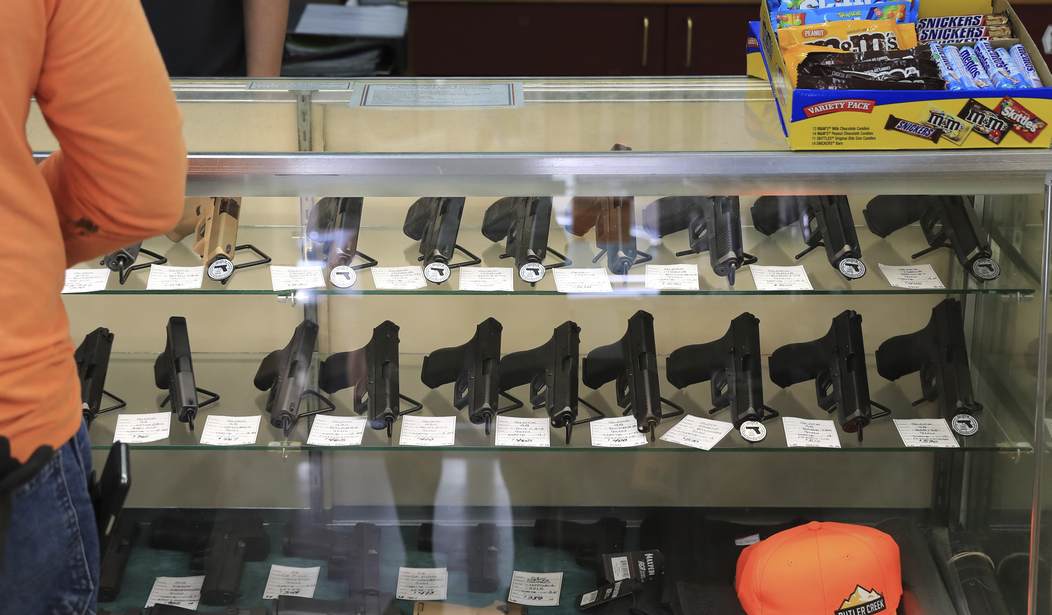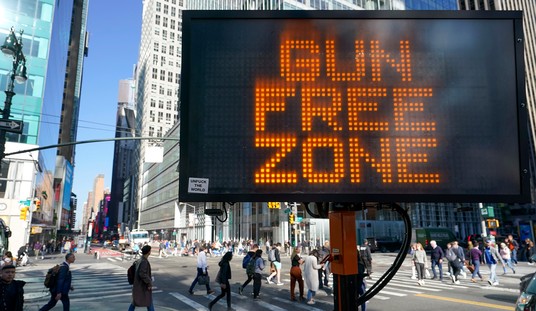Under Illinois law, in order to lawfully possess a firearm, either inside your home or in public, you must possess a valid Firearms Owner ID card. Additionally, if you want to bear arms outside your home, you'll need a state-issued Concealed Carry License (Illinois doesn't recognize any permits issued by the 49 other states).
Possession of a firearm without one or both of these licenses is typically prosecuted as "Unlawful Use of a Weapon", which can be charged as either a misdemeanor or felony depending on the circumstances.
Tyshon Thompson was convicted of the felony offense of aggravated unlawful use of a weapon after police pulled over a car in March, 2020 and found a loaded handgun inside the glove compartment, with Thompson at the wheel. Chemical testing showed gunpowder residue on Thompson's hand, and ballistics testing matched the gun in the car to one that was used in a shooting at a gas station not long before the traffic stop.
Thompson had a Firearms Owner ID card, but hadn't applied for a concealed carry license. He appealed his conviction, arguing in part that the Illinois law criminalizing open carry is unconstitutional (a weird argument, given that the gun was inside a glove box when he was arrested), as well as maintaining that the double licensing regime mandating both CCLs and FOID cards in order to carry doesn't fit within the historical tradition of gun ownership.
In a 5-1 decision issued on Thursday, the Illinois State Supreme Court disagreed with both of those arguments. In their ruling, the justices held that "although defendant is correct that his public carriage of a handgun is presumptively protected, Bruen itself stands for the proposition that Illinois’s nondiscretionary, 'shall-issue' firearm licensing regime does not violate the second amendment. For the following reasons, we hold that the AUUW statute’s ban on unlicensed public carriage, coupled with the requirements to obtain CCLs and FOID cards, is not facially unconstitutional under the second amendment."
The foundation of Bruen’s holding is the difference between the proper-cause requirements in may-issue licensing regimes and the objective requirements in shall-issue licensing regimes. Licensing decisions in shall-issue states, like Illinois, turn on objective criteria, not on a licensing official’s subjective opinion or an applicant’s showing of some additional need for self-defense. The Bruen Court expressly declared shall-issue licensing regimes facially constitutional under the second amendment because they neither give officials licensing discretion nor require the applicant to show an atypical need for self-defense:
What the Court said in Footnote 9 of the Bruen opinion is that "nothing in our analysis should be interpreted to suggest the unconstitutionality of the 43 States’ “shall-issue” licensing regimes, under which “a general desire for self-defense is sufficient to obtain a [permit].” The footnote went on to state:
Because these licensing regimes do not require applicants to show an atypical need for armed self-defense, they do not necessarily prevent “law-abiding, responsible citizens” from exercising their Second Amendment right to public carry. Rather, it appears that these shall-issue regimes,which often require applicants to undergo a background check or pass a firearms safety course, are designed to ensure only that those bearing arms in the jurisdiction are, in fact, “law-abiding, responsible citizens.” And they likewise appear to contain only “narrow, objective, and definite standards” guiding licensing officials, rather than requiring the “appraisal of facts, the exercise of judgment, and the formation of an opinion,” —features that typify proper-cause standards like New York’s. That said, because any permitting scheme can be put toward abusive ends, we do not rule out constitutional challenges to shall-issue regimes where, for example, lengthy wait times in processing license applications or exorbitant fees deny ordinary citizens their right to public carry.,
I suspect that footnote 9 is going to be a thorn in the side of gun owners for decades to come as anti-gun states push the boundaries of what they can get away with under a "shall issue" system. But as I emphasized above, Supreme Court also declared that shall issue regimes with excessive wait times or exorbitant fees can be unconstitutional.
Thompson, however, didn't allege that Illinois takes too long or charges too much for a carry license. Instead, it was the licensing process itself he challenged, and the state Supreme Court could easily cite Bruen in defense of its law requiring a carry license.
Thompson did try to argue that Illinois' law isn't really "shall issue" at all, since law enforcement agencies can "object to a CCL application based on a reasonable suspicion that the applicant is a danger to himself or herself or others, or a threat to public safety," at which time the Illinois State Police has 90 days to review and investigate the objection before issuing or denying the license.
The state Supreme Court claims Bruen "permits mental health checks to ensure that the applicant is not a threat to harm himself or herself or others", but I don't think that's the case. Bruen certainly never explicitly endorsed the idea of a psychological evaluation or other mental health check before obtaining a carry permit, regardless of whether those checks require an applicant to demonstrate some special need to carry a gun. In fact, footnote 9 talks about "narrow, objective, and definite standards” guiding licensing officials, rather than requiring the “appraisal of facts, the exercise of judgment, and the formation of an opinion". A mental health evaluation is subjective, with different mental health workers able (and perhaps likely) to draw different conclusions based on their own analysis and experience.
What about the FOID card that's required to possess a firearm inside the home? Several lower court judges around the state have found the FOID card unconstitutional, but the state Supreme Court has sidestepped a direct ruling by finding fault with those decision on technical grounds. Once again the court declined to address the constitutionality of FOID cards, instead ruling that requiring a separate license to carry comports with the Second Amendment because the CCL's fees and approval process "do not require applicants to show an atypical need for armed self-defense and are designed to ensure that only those bearing arms in the jurisdiction are, in fact, law-abiding, responsible citizens."
In his dissent Justice David K. Overstreet argued that his colleagues are completely ignoring what Bruen said about conducting a "history, text,, and tradition" test to determine the validity of laws challenged under the Second Amendment.
Here, contrary to what Heller, Bruen, and Rahimi plainly require, the majority has bypassed all textual and historical considerations in relation to Illinois’s firearm regulations by suggesting that Bruen’s footnote 9 embodies a holding that directly contradicts what Heller, Bruen, and Rahimi expressly state is required. However, nowhere in Heller, Bruen, or Rahimi does the Court analyze any aspect of Illinois’s Concealed Carry Act or any other states’ “shall issue” licensing statute under the text-and-history standard, and the Court offers no express language whatsoever stating that second amendment challenges to shall-issue licensing schemes are exempt from consideration of textual and historical issues. Instead, each time the Court has addressed a second amendment challenge to a modern firearm regulation, the Court has undertaken the full textual and historical analysis.
... The Court has not canvassed any historical record furnished by the government to determine if requiring any license, even one with objective criteria, has analogues in American history, and the Bruen Court went to great lengths to emphasize that this was the required inquiry before a court can conclude that any firearm regulations comply with our constitution’s second amendment.
... In concluding that footnote 9 in Bruen “expressly held” that Illinois’s shall issue licensing scheme complies with the second amendment, the majority gives considerable weight to Justice Kavanaugh’s special concurrence joined by Chief Justice Roberts. Undeniably, Justice Kavanaugh’s concurrence contains the express statement that “shall-issue licensing regimes are constitutionally permissible, subject of course to an as-applied challenge if a shall issue licensing regime does not operate in that manner in practice.” In addition, Justice Kavanaugh and Chief Justice Roberts provided two votes that were necessary to the six-justice majority in Bruen. However, those two justices’ votes, standing alone, do not constitute the Bruen majority. If the Bruen majority had reached the conclusion that Justice Kavanaugh explicitly stated in his concurrence, that explicit language would be included within the body of the Bruen majority opinion, or even in footnote 9, but it is not. Accordingly, it cannot be said that the Bruen majority reached this additional, unstated conclusion.
Overstreet is correct in arguing that the Illinois Supreme Court should have undertaken an examination of the historical record; not only of the concealed carry system but the FOID card requirement as well.
Thompson, on the other hand, would have been better off with an as-applied challenge instead of a facial challenge, and his odd attempt to argue that the gun in his glovebox was being openly carried didn't help his case either.
The good news is that the state Supreme Court still hasn't ruled directly on whether or not the FOID requirement violates the Second Amendment, so the challenges to FOID shouldn't be impacted too badly by this decision. Of course, if the justices continue to ignore what SCOTUS has actually said about the text of the Second Amendment and the history tradition of gun ownership, they're likely to rubber stamp their approval of the FOID statute if and when they finally consider the issue.









